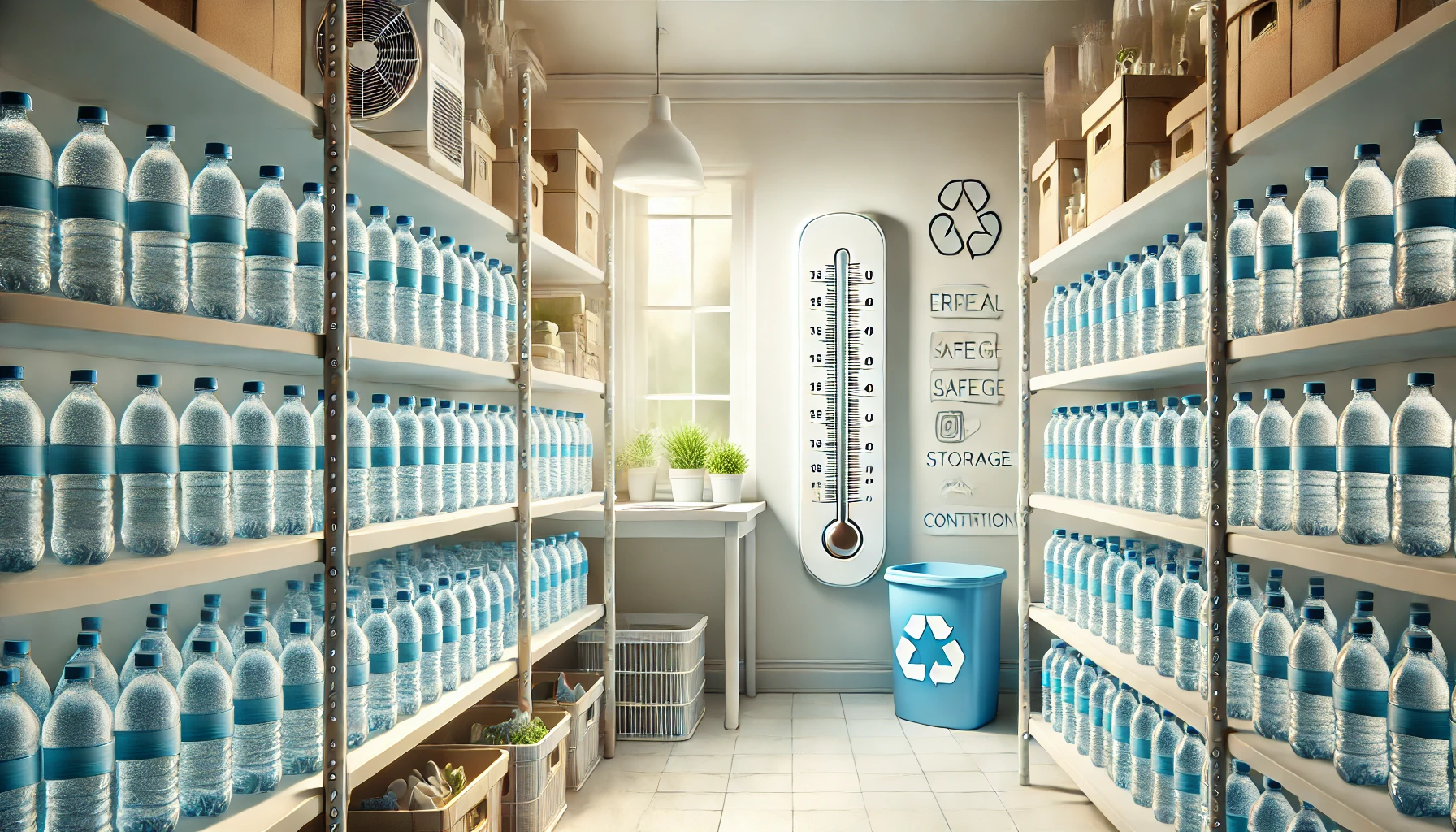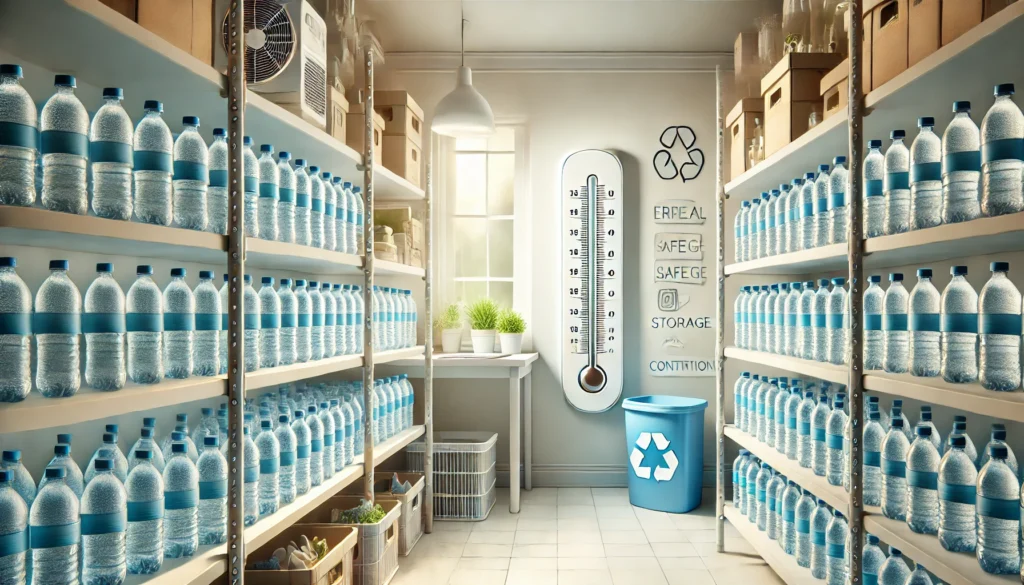Does Bottled Water Expire Discover the Truth About Shelf Life and Safety
Understanding the Concept of Expiration for Bottled Water
When people see an expiration date on bottled water, it often sparks confusion. After all, water doesn’t spoil in the traditional sense like perishable food items. The idea of expiration is tied more to the packaging and storage conditions than the water itself. Expiration dates on bottled water are typically required by regulation and help ensure that the product remains safe for consumption within a reasonable time frame.
The key thing to understand is that bottled water can stay safe indefinitely under ideal conditions. However, factors like the type of bottle, storage location, and exposure to heat can influence its quality. That’s why these dates are more of a guideline for optimal taste and safety rather than a hard rule.
Interestingly enough, the expiration label is more about the bottle than the water. Over time, the plastic may begin to leach into the water, especially if exposed to heat or direct sunlight. This makes proper storage essential for preserving quality.
What Does the Expiration Date on Bottled Water Mean
Expiration dates on bottled water can seem misleading, but they serve a purpose. They indicate the manufacturer’s guarantee of freshness, taste, and safety up to a certain period. This doesn’t mean the water is unsafe after that date, but it may lose its intended quality.
Water itself is a stable compound that doesn’t degrade. However, the materials used in bottling, such as plastic, may degrade over time. These changes can slightly alter the water’s flavor or, in some cases, introduce unwanted chemicals into the water.
Think of the expiration date as a recommendation for when to consume the water at its peak quality. It’s especially important if the bottle has been stored in less-than-ideal conditions, like high heat or freezing temperatures.
How Bottled Water is Packaged and Preserved
The way bottled water is packaged plays a huge role in its longevity. Most water bottles are made from PET plastic, which is lightweight and recyclable. This material is designed to maintain the integrity of the water inside, but it has its limitations.
Packaging processes are sterile, ensuring that the water is free of contaminants. However, over time, small amounts of chemicals from the plastic can seep into the water, especially if the bottle is old or improperly stored. This doesn’t happen overnight but gradually, making long-term storage a concern.
Additionally, sealed caps and sterilized conditions ensure that the water inside remains uncontaminated until the bottle is opened. Once opened, the risk of microbial contamination increases significantly, so it’s best to consume bottled water soon after breaking the seal.
Factors That Affect the Shelf Life of Bottled Water
A variety of factors can impact how long bottled water remains fresh and safe. Temperature is a major one. Storing bottled water in hot environments can speed up the breakdown of plastic, which may affect the water’s taste and safety.
Exposure to sunlight is another key factor. UV rays can degrade the plastic, leading to potential leaching of chemicals. Additionally, sunlight can promote the growth of algae if the bottle isn’t completely sealed.
Other factors include the quality of the bottle and how long it has been stored. Premium bottles with thicker walls and better seals often last longer than cheaper alternatives. Proper storage in cool, dark places can significantly extend the shelf life of bottled water.
The Role of Plastic in Bottled Water Storage and Safety
Plastic is both a boon and a bane for bottled water. On one hand, it provides a lightweight, cost-effective way to store and transport water. On the other hand, it’s prone to degradation over time, especially when exposed to heat and light.
When plastic breaks down, it can release compounds like BPA or other chemicals into the water. While most bottled water brands now use BPA-free plastic, there are still concerns about other potential leachates.
To minimize risks, always check for BPA-free labeling and store your bottled water in a cool, shaded area. Glass bottles, though heavier, are another alternative for those concerned about plastic safety.
Does Expired Bottled Water Become Unsafe to Drink
In most cases, expired bottled water is still safe to drink. The water itself doesn’t spoil, but its taste and quality might degrade. The primary concern is the potential leaching of plastic compounds into the water over time.
If the bottle shows visible signs of damage, such as warping or discoloration, it’s best to avoid drinking the water. Similarly, if the water tastes or smells unusual, err on the side of caution and discard it.
To ensure safety, follow the manufacturer’s recommendations and store bottled water properly. This will help maintain its quality well beyond the printed expiration date.
How to Properly Store Bottled Water to Extend Its Shelf Life
Proper storage is essential for maintaining the quality of bottled water. Always keep it in a cool, dark place away from direct sunlight and heat sources. High temperatures can speed up plastic degradation and affect water quality.
Keep bottled water upright to prevent leaks or contamination. This is especially important for long-term storage. Additionally, avoid freezing bottled water, as this can cause the plastic to crack and compromise the seal.
By following these simple storage tips, you can extend the shelf life of your bottled water and ensure it stays fresh and safe for consumption.
Debunking Myths About Bottled Water Expiration
There are many myths surrounding bottled water expiration. One common belief is that water can “go bad” after the expiration date. In reality, the water itself remains safe; it’s the packaging that might deteriorate over time.
Another myth is that unopened bottled water can grow bacteria. While this is technically possible if the seal is compromised, properly packaged and stored water is virtually immune to microbial growth.
Understanding these myths helps consumers make informed choices and avoid unnecessary waste by discarding perfectly safe bottled water.
Environmental Impacts of Long-Term Bottled Water Storage
Storing bottled water for long periods contributes to environmental issues. Plastic bottles take years to degrade and often end up in landfills or oceans. This makes proper disposal and recycling critical.
Additionally, the energy and resources required to produce and store bottled water have a significant carbon footprint. Opting for reusable water bottles and filtration systems can help mitigate these impacts.
Being mindful of the environmental consequences of bottled water use encourages sustainable practices and reduces waste.
Best Practices for Choosing and Using Bottled Water
When selecting bottled water, prioritize brands that use high-quality, BPA-free materials. Check for certifications and labeling that guarantee purity and safety.
Always inspect the bottle for signs of damage before purchasing, and store it properly to maintain its quality. Consider opting for glass or metal alternatives for a more sustainable choice.
By being informed and selective, you can enjoy the convenience of bottled water without compromising on safety or environmental responsibility.
Conclusion
Does bottled water expire? While the water itself remains safe indefinitely, the quality and taste may degrade over time due to factors like plastic leaching and improper storage. By understanding the role of expiration dates, packaging, and storage conditions, you can make informed decisions about your bottled water consumption.
Remember to store your bottles in a cool, dark place and inspect them for any signs of damage before use. This ensures both safety and quality, even beyond the printed expiration date.
If you found this information helpful, share it with your friends, leave a comment with your thoughts, or subscribe to our newsletter for more insights like this. Let’s stay hydrated and informed together!




